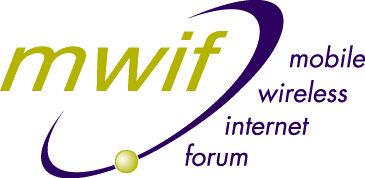
Ray Hegarty
New York - The Mobile Wireless Internet Forum wants to drag the telecommunications infrastructure providers kicking and screaming into the Internet protocol world, and in the process influence the 3G W-CDMA, cdma2000 and Internet communities to merge their networks into one. The nonprofit MWIF would in effect like to be the catalyst for the creation of a single core network that supports all access technologies, including wireless, fixed wireless and wired.
While in theory the Internet is the universal backbone for all data communications, from a technology perspective, wired and wireless networks remain separate. Even among wireless networks there are interface transparencies.
The MWIF, which includes a sizable portion of the world's wireless carriers, thinks infrastructure providers are dragging their heels on implementing key specifications such as IPv6. It would prefer to see the technology providers more active in putting the specs into use in their core network offerings, thereby providing a common infrastructure and common services that are independent of the access technology in other words, a converged platform.
Carriers, meanwhile, worry that they will continue to have to invest in expensive core data infrastructure while the network providers maintain higher prices than those charged for similar technologies in the fixed-line Internet environment.
"At present, the network behind every air interface is built for that specific interface, so there are multiple, mutually exclusive networks," explained Dean Sirovica, MWIF president and Vodafone AirTouch director of global technology.
To get to the single core network, the MWIF has identified several key requirements, including the implementation of IP-based wireless networks. The plan would enable common infrastructure and services that are independent of the air interface, as well as seamless integration between mobile telephony and IP-based services such as data, voice, video and multimedia applications.
IP technology has long been part of the infrastructure providers' 'promissory note.' According to Sirovica, however, many companies Ericsson was singled out merely pay 'lip service' to that promise while building non-interoperable vertical software stacks. The reality is, the companies supplying base stations and switches are very profitable, he added.
Sirovica wants to simplify the radio access network, claiming it is very "deep" at present. Several elements touch the air interface from the device to the base station, the base-station controller and some parts of the switch, he explains. The MWIF's aim is to make the radio access network as narrow as possible, so that what touches the air interface is limited to parts of the handset and the base station.
The benefit is obvious. As air interfaces advance, the entire network infrastructure doesn't have to be rebuilt each time, as has been necessary for 2.5G and 3G networks. This matters greatly, as wireless carriers such as Vodafone want and need to reduce capital and operational costs as they build out their packet data transmission systems.
The cost of using standard Internet elements is dramatically lower, and given the open standards and interfaces, service providers can greatly benefit from multi-vendor procurement, said Sirovica.
IP rationalizes the structure of the control plane, the part of the network operator's platform that controls the phone calls. Ipv6 provides information such as the user's ID and the kind of data transfer performed; it also enables information to be sent to the layers in the system that deliver applications to the device. This functionality is key for content provisioning in a packet-based environment, paving the way for two-way video conferencing and application sharing.
The MWIF is a standard-influencing body; it deals with the big picture rather than with the minute details, the province of standard-developing bodies. It aims to influen ce the 3GPP (Third Generation Partnership Project), 3GPP2 and Internet Engineering Task Force.
MWIF founding members include Alcatel, Cisco, Compaq, Comverse, DDI, Ericsson, Fujitsu, HP, Hitachi, Hyundai Electronics, IBM, KPMG Consulting, LG Information and Communications, Lucent, Microsoft, Motorola, NEC, Nokia, Nortel, Orange, Qualcomm, Samsung Electronics, Sharp, Siemens, SK Telecom, Sony, Sprint PCS, Sun, Toshiba, 3Com and Vodafone AirTouch.
Mobile Wireless Internet Forum